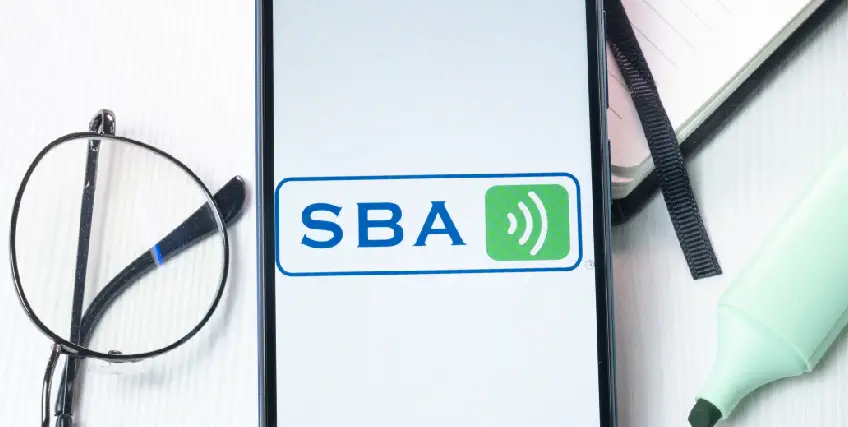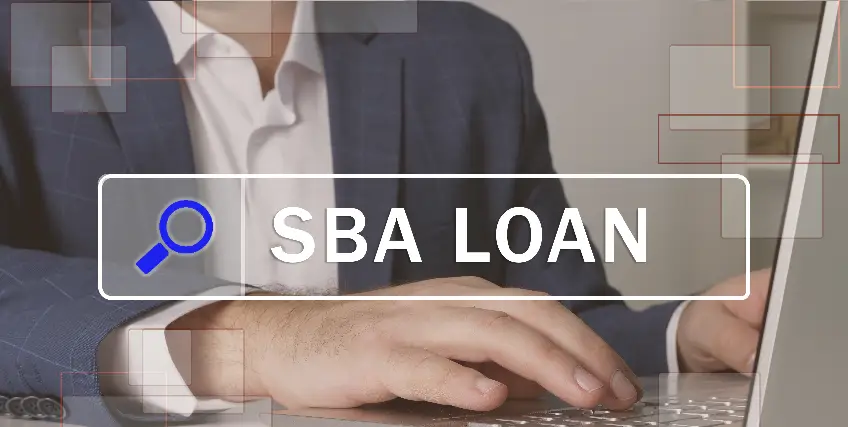SBA Loan Rates by Program 7(a), 504, and Microloan Breakdown
December 25, 2025 | Last Updated on: December 25, 2025

For small business owners, securing business financing is one of the biggest steps. However, selecting the right loan program is even more critical. There are various factors that play a major role in financing, such as interest rates, repayment terms, and the type of loan.
SBA loans are one of the ideal options when it comes to business financing. It is backed by the U.S. Small Business Administration and offer competitive rates, longer repayment terms, and broader eligibility criteria for small business owners. However, one of the main points to understand is that each SBA loan comes with its own structure, purpose, cost, and SBA loan rates.
These loans are often structured to provide lower financial pressure in the early stages of business growth. Also, they can accommodate a wide range of business plans. From flexible repayment schedules to capped interest rates, it is important to understand each loan option before making any commitment.
In this article, we’ll discuss the most common SBA loan programs, such as SBA 7(a) loan, SBA 504 loan, and Microloans. We will also compare SBA loan rates, uses, and benefits so you can choose the best option.
What Are SBA Loans
SBA loans are small business loans backed by the Small Business Administration that are designed to reduce the risk for lenders. This typically encourages banks and credit unions to extend financing to businesses that might otherwise be declined.
However, the SBA doesn’t lend directly. Instead, it guarantees a portion of the loan, reducing the lender’s exposure. This guarantee provides more access to capital, especially for startups and small business owners.
Why Do Business Owners Consider SBA loans?
Business owners often consider SBA loans for their small businesses because:
- SBA loan rates can be lower than conventional business loan rates, like term loans or lines of credit.
- These loans come with longer repayment terms, making monthly payments more manageable.
- They also offer flexible financing options for working capital, real estate, equipment, or refinancing existing debt.
However, you must meet specific criteria for eligibility. Most SBA loans are for-profit U.S.-based businesses that meet size standards and demonstrate strong creditworthiness.
SBA 7(a) Loan Program: Rates and Structure
The SBA 7(a) loan is one of the most popular loan programs offered by the SBA. It provides flexible access to funds for various uses such as purchasing inventory, refinancing existing business loans, and expanding operations.
These loan amounts can go up to $5 million. Additionally, the SBA provides a guaranty of up to 85% for loans up to $150,000, and up to 75% for higher amounts.
The SBA loan rates are typically variable rate loans tied to the current prime rate.
| Loan Amount | Maximum Interest Rate |
|---|---|
| $50,000 or less | Prime + 6.5% |
| $50,001 to $250,000 | Prime + 6.0% |
| $250,001 to $350,000 | Prime + 4.5% |
| Above $350,000 | Prime + 3.0% |
The repayment terms for these loans are up to 10 years for working capital or equipment, and up to 25 years for commercial real estate.
For SBA 7(a) loans, borrowers might need to pay upfront fees. These fees vary based on the loan size and disclosures made by the SBA lender. While fees may apply, the competitive rates and repayment flexibility do make it worthwhile.
SBA 504 Loan Program: Rates and Structure
The SBA 504 loan is an ideal option for acquiring fixed assets such as buildings, land, or heavy equipment. These loans are built to support long-term investments in business infrastructure.
SBA 504 loan uses a three-party structure:
- A traditional lender funds 50%.
- A Certified Development Company (CDC), backed by the SBA, finances 40%.
- The borrower contributes a down payment of 10%.
The SBA loan rates comprise of fixed interest rates that are based on Treasury bond yields, offering predictability for budgeting.
The SBA 504 loans generally offer up to $5 million for most projects. However, loans up to $5.5 million are also available only for energy-efficient or manufacturing-related projects. Small business owners may be required to create or retain jobs as part of the eligibility requirements. Also, they are commonly used to refinance existing real estate debt.
Unlike the 7(a) program, 504 loans require a commitment from both a private lender and one of the certified development companies (CDCs) that work with the SBA. If you're seeking a fixed rate business loan, this option provides predictable costs over time.
SBA Microloans: Rates and Accessibility
SBA microloans are designed for startups, nonprofits, and businesses in underserved communities. These loans help small businesses cover smaller expenses without requiring extensive underwriting.
Borrowers can access up to $50,000, but the average loan amount is $13,000. These loans are issued by nonprofit community-based organizations and preferred lenders.
The SBA loan rates range from 8% to13% and are set by the intermediary lender. However, these rates can vary depending on the individual situation. These loan options are best for:
- Buying equipment or supplies
- Funding marketing or product development
- Providing working capital for early-stage operations
Repayment terms for microloans extend up to seven years. These loans come with fewer formal disclosures, making them accessible to first-time small business owners.
While they don't suit large-scale investments, microloans are ideal for testing new ideas or funding initial growth phases.
Comparison of SBA Loan Programs
All SBA loan programs serve different kinds of business needs. The 7(a) loan offers broad use with higher borrowing limits, making it a popular option among growth-stage businesses.
While 504 loans focus more on strategic investments. They are best suited for companies investing in real estate or machinery. These loans have a fixed structure, longer terms, and lower SBA loan rates.
Lastly, microloans work best for startups that need quick funds for operations or local development. These loans are easy to qualify for but have higher SBA loan rates.
Hence, your business stage, project type, and credit score will influence which loan option fits the best for you. Moreover, before considering any of the three options, also check for monthly repayment capability and your comfort with fixed vs. variable rate loans.
Side-by-Side Comparison Table of SBA Loan Rates and Terms
Here's a quick breakdown of the SBA loan programs to help you compare better. This table covers important figures like loan limits, SBA loan rates, and repayment terms.
| Loan Program | Maximum Loan Amount | Repayment Terms | Best Use Case |
|---|---|---|---|
| SBA 7(a) | $5 million | Up to 25 years | Working capital, refinancing, general expenses |
| SBA 504 | Up to $5 million (standard); $5.5 million (energy or manufacturing projects) | Up to 25 years | Real estate, long-term equipment |
| Microloans | $50,000 | Up to 7 years | Startups, marketing, small equipment |
How SBA Loan Rates Compare to Conventional Business Loans
SBA loans are often compared to conventional loans, especially when business owners decide between banks and SBA-backed programs. However, SBA loans offer more favorable terms when compared to conventional business loans.
Here are the structural differences and some key SBA loan rates to compare between the two options.
Interest Rates
SBA loan interest rates are typically capped by the government, whereas conventional loans can fluctuate based on market competition and risk level. Let’s take an example. SBA 504 loans often have a fixed interest rate of around 6-6.5%, while conventional commercial loans may exceed 8%.
Repayment Terms
SBA loans offer repayment periods up to 25 years, which typically results in lower monthly payments. While conventional loans have shorter terms, ranging from 3 years to 10 years.
Down Payments
SBA loans like 504 require as little as 10% down payment. While conventional lenders might ask for 20-30%, depending on the business type and collateral.
Approval Process
SBA loans often require a more detailed underwriting process but offer broader eligibility. On the flip side, conventional loans may be faster but harder to qualify for if your credit score isn’t that strong.
The Bottom Line
Deciding on the right SBA loan program depends on your business needs, current financial health, and repayment strategy. However, each loan program has its advantages and limitations.
You can use the SBA 7(a) loan for flexibility and general business growth. While the SBA 504 loan can be used when investing in large assets like commercial real estate. And go with microloans if you're just starting or need limited funds.
Also, before applying for any loan option, always use a business loan calculator to estimate your monthly payments and compare all financing options. Then speak with an SBA lender to assess your creditworthiness to determine your best match.
Ready to explore SBA loan programs today? If yes, talk to an SBA lender and fuel your business goals with confidence and the right financing support.
FAQs About SBA Loan Rates
What are the current SBA loan rates for small businesses?
SBA loan rates typically vary depending on the program, loan size, and various market conditions. For example, SBA 7(a) loans follow a variable rate structure, while SBA 504 loans offer fixed rates. Therefore, it’s best to check the latest figures from SBA-approved lenders for the most current estimates.
How do SBA loans differ from conventional business loans?
SBA loans usually come with capped SBA loan rates and longer repayment terms, making them more appealing for some businesses. On the other hand, conventional loans might offer faster approval but may also require high credit scores. Hence, the right choice always depends on your financing goals and how much flexibility you need.
Can SBA 504 loans be used for real estate purchases?
The SBA 504 loans are commonly associated with real estate and large equipment investments. However, they come with certain eligibility requirements that borrowers need to meet. You can always take advice from an SBA lender based on your project type and business structure.
Are microloans a good fit for startups?
Microloans are typically designed for smaller funding needs and can be more suitable for new businesses. These loans come with shorter repayment terms and higher SBA loan rates, compared to other SBA loan programs. However, depending on your capital requirement and timeline, this loan option might work well for early-stage business goals.
How do I know which SBA loan is right for me?
Each SBA loan program serves a unique purpose, so your decision depends on what you're financing. A larger purchase might lean toward the 504 loans, while SBA 7(a) loans support broader uses. It helps to compare repayment terms and talk to a lender to evaluate your options.
Frequent searches leading to this page
Related Articles
Term Loans are made by Itria Ventures LLC or Cross River Bank, Member FDIC. This is not a deposit product. California residents: Itria Ventures LLC is licensed by the Department of Financial Protection and Innovation. Loans are made or arranged pursuant to California Financing Law License # 60DBO-35839




